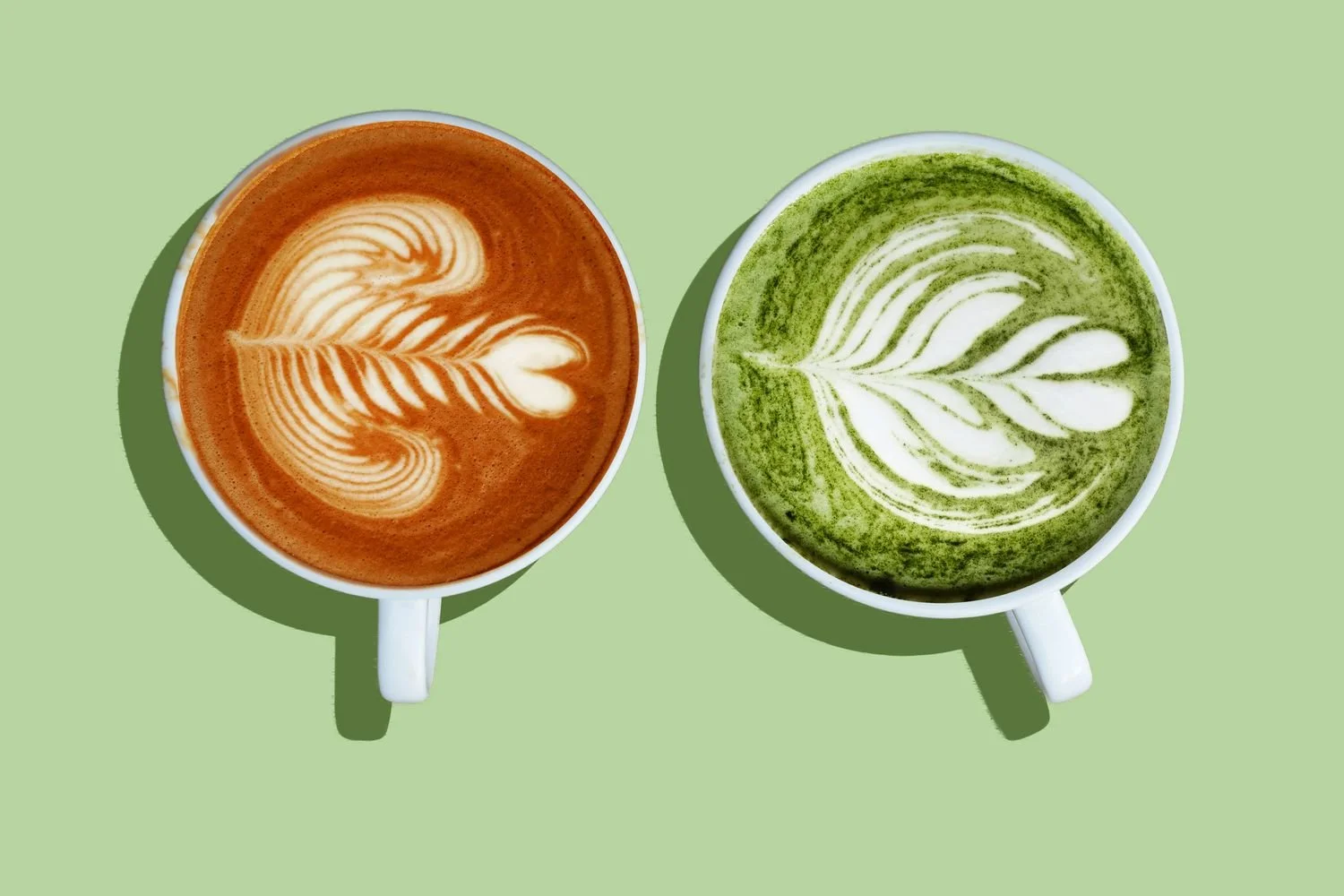Matcha versus Coffee: What's the Difference?
Matcha and coffee are two popular drinks that are used to help give you that much needed energy boost in the morning, or during that dreaded 3pm slump when you question how you’re going to make it through the rest of your work day. However, there is often a debate about which of these caffeinated drinks is better for you, as they impact the body in different ways. Matcha is also becoming increasingly popular in the social media world, so you may also be wondering which drink is better suited for you and your personal health goals. Let’s break it down!
While coffee is brewed from roasted and ground coffee beans, matcha is a powder that is made from Japanese green tea. Again, a primary reason why people choose to drink matcha and coffee is due to the caffeine content which can help with fatigue. There are also many shared benefits that come from drinking either beverage. For example, both matcha and coffee contain antioxidants which can help protect the body from oxidative stress; oxidative stress can eventually cause various diseases to form, one of which being cancer. They also both contain a specific group of antioxidants called polyphenols, which can help prevent tumor growth and may help protect your body from cardiovascular disease.
While they do share some similarities, there are also some differences. Coffee provides a more instant energy boost than matcha because your body absorbs the caffeine from coffee at a more rapid rate compared to matcha. Another big difference is that matcha contains an amino acid that is found in green tea called L-theanine. L-theanine has many benefits, including stress reduction by increasing the alpha waves in our brain. When L-theanine is combined with caffeine, it is found to help reduce tiredness and also increase alertness.
Now let’s look at some pros and cons of each. Again, matcha contains L-theanine which can help increase feelings of alertness while simultaneously promoting relaxation (without causing drowsiness). Matcha also can help improve oral health, which is something that coffee does not do, and it also contains fiber and is less acidic than coffee. However, some cons are that it is more expensive than coffee, and many people don’t like the flavor, as it has a more earthy taste than coffee. For coffee, some pros are that it is less expensive, and it is more available than matcha typically is. For example, many shops may offer coffee if you are looking to stop for a quick drink, but matcha is likely harder to find. As for cons for coffee, many people become dependent on coffee to give you that instant energy boost. There are also some unwanted side effects, like jitters, headaches, anxiety, and insomnia.
Whether you prefer matcha or coffee, both have their individual pros and cons. L-theanine is a great addition to matcha that coffee does not have, but it is also important to remember that both contain caffeine, which is meant to be consumed in moderation!

